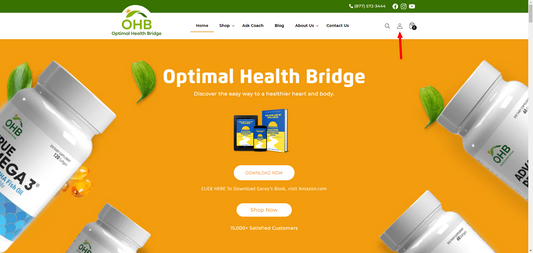
Share
Benefits and Importance of Vitamin D3
by Garey Simmons
Vitamin D is an essential nutrient that plays a crucial role in maintaining overall health and well-being. Among its various forms, Vitamin D3 stands out for its significance and the numerous benefits it offers. In this article, we will explore the importance of Vitamin D3, its sources, health benefits, and the potential risks associated with deficiency or excessive intake. So, let’s dive in and uncover the power of Vitamin D3!
Importance of Vitamin D3
Vitamin D3, also known as cholecalciferol, is a fat-soluble vitamin that is naturally produced in the skin when exposed to sunlight. It is also obtained from certain foods and supplements. This vitamin is vital for various bodily functions and has a profound impact on our overall health.
Role of Vitamin D3 in the Body
Vitamin D3 plays a crucial role in calcium absorption, promoting healthy bone development and preventing conditions like osteoporosis and rickets. Additionally, it supports immune function, modulates cell growth, and aids in the regulation of blood pressure and insulin levels.
Sources of Vitamin D3
Sun Exposure
The most natural and efficient way to obtain Vitamin D3 is through exposure to sunlight. When ultraviolet B (UVB) rays from the sun interact with our skin, Vitamin D3 synthesis is triggered. However, factors such as geographical location, time of day, season, and skin pigmentation influence the body’s ability to produce Vitamin D3 from sunlight.
Food Sources
While sunlight is the primary source of Vitamin D3, it is also found in certain foods. Fatty fish like salmon and mackerel, egg yolks, fortified dairy products, and mushrooms are excellent dietary sources of Vitamin D3. Including these foods in your diet can contribute to maintaining optimal levels of this crucial nutrient.
Supplements
In cases where sunlight exposure is limited or dietary intake is insufficient, Vitamin D3 supplements can be beneficial. Supplements come in various forms, including tablets, capsules, and liquid drops. It is essential to consult a healthcare professional to determine the appropriate dosage for your specific needs.
Health Benefits of Vitamin D3
Supports Bone Health
Vitamin D3 is vital for calcium absorption, a mineral essential for maintaining healthy bones and teeth. It aids in the regulation of calcium levels in the blood, ensuring that bones receive an adequate supply of calcium. This, in turn, helps prevent bone loss, fractures, and conditions like osteoporosis.
Enhances Immune Function
Vitamin D3 has a profound impact on the immune system, acting as a key regulator of immune response. It helps activate and strengthen the immune cells, enabling them to effectively fight against pathogens and reduce the risk of infections. Adequate levels of Vitamin D3 are particularly important during the winter months when sunlight exposure is limited.
Reduces the Risk of Chronic Diseases
Research suggests that maintaining optimal levels of Vitamin D3 may lower the risk of developing chronic diseases. Adequate Vitamin D3 intake has been associated with a reduced risk of cardiovascular diseases, certain types of cancer (such as colorectal, breast, and prostate cancer), and autoimmune conditions like multiple sclerosis and rheumatoid arthritis.
Improves Mood and Mental Health
Vitamin D3 also plays a role in mental well-being. Studies have shown a connection between Vitamin D deficiency and an increased risk of depression, mood disorders, and cognitive decline. Adequate levels of Vitamin D3 may help improve mood, reduce symptoms of depression, and enhance cognitive function.
Vitamin D3 and Sun Exposure – Optimal Sun Exposure for Vitamin D Synthesis
Getting the right amount of sun exposure is crucial for Vitamin D3 synthesis. The skin needs direct exposure to sunlight, without the use of sunscreen, for a specific duration to produce Vitamin D3 efficiently. The ideal time varies depending on factors such as location, season, time of day, and skin type. Generally, spending around 10-30 minutes in the sun a few times a week can help maintain adequate Vitamin D3 levels.
Factors Affecting Vitamin D Production
Several factors can affect the body’s ability to produce Vitamin D3 from sunlight. These include living in regions with limited sunlight, air pollution, cloud cover, clothing choices that cover most of the skin, and the use of sunscreen with a high sun protection factor (SPF). It is important to strike a balance between sun protection and obtaining sufficient Vitamin D3.
Sunscreen Use and Vitamin D Synthesis
While sunscreen is crucial for protecting the skin from harmful UV radiation and reducing the risk of skin cancer, its use can inhibit Vitamin D3 synthesis. To find a balance, experts recommend applying sunscreen after the initial sun exposure necessary for Vitamin D3 production. This allows for the absorption of beneficial UVB rays while still protecting the skin from excessive sun damage.
Vitamin D3 and Dietary Sources
Foods Rich in Vitamin D3
Apart from sunlight exposure, incorporating Vitamin D3-rich foods into your diet can help meet the recommended intake. Fatty fish like salmon, trout, and sardines are excellent sources of Vitamin D3. Other options include fortified dairy products like milk and yogurt, cheese, egg yolks, and certain mushrooms. Consuming a variety of these foods can contribute significantly to your Vitamin D3 levels.
Importance of Balanced Diet for Vitamin D Intake
While specific foods contain Vitamin D3, it is important to maintain a balanced diet to ensure overall nutrient intake. Consuming a variety of fruits, vegetables, whole grains, lean proteins, and healthy fats provides the body with the necessary nutrients to support Vitamin D absorption and utilization. A well-rounded diet is essential for maintaining optimal health.
Vitamin D3 Deficiency
Causes of Deficiency
Vitamin D3 deficiency can occur due to various factors. Insufficient sunlight exposure, especially in regions with limited sunlight or during winter months, can contribute to deficiency. Additionally, individuals with darker skin pigmentation, older adults, people with certain medical conditions, and those who follow strict vegetarian or vegan diets may be at a higher risk of deficiency.
Symptoms and Health Risks
Symptoms of Vitamin D3 deficiency can vary, and they may be subtle or go unnoticed. Common signs include fatigue, muscle weakness, bone pain, frequent infections, and mood changes. Prolonged deficiency can lead to more severe health risks such as osteoporosis, increased susceptibility to infections, impaired wound healing, and an increased risk of chronic diseases.
Diagnosis and Treatment
If you suspect a Vitamin D3 deficiency, it is essential to consult a healthcare professional. They can evaluate your symptoms, perform a blood test to measure your Vitamin D levels, and determine the appropriate course of treatment. Treatment typically involves Vitamin D3 supplementation and increasing sunlight exposure or adjusting dietary habits to ensure sufficient intake.
Factors Influencing Recommended Intake
Several factors influence the recommended Vitamin D3 intake. These include sunlight exposure, geographical location, skin pigmentation, age, overall health, and specific medical conditions. It’s crucial to consider these factors to ensure an appropriate intake that meets your individual needs.
Safety Considerations
Potential Risks of Excessive Vitamin D3 Intake
While Vitamin D3 is essential for health, excessive intake can lead to toxicity. This usually occurs through high-dose supplementation, as it is challenging to reach toxic levels through sunlight exposure or dietary sources alone. Excessive Vitamin D3 can cause symptoms such as nausea, vomiting, excessive thirst, frequent urination, and even kidney damage.
Vitamin D Toxicity Symptoms
The symptoms of Vitamin D toxicity include fatigue, weakness, loss of appetite, weight loss, nausea, vomiting, constipation, and excessive thirst. If you experience any of these symptoms, it’s important to consult a healthcare professional immediately.
Consultation with Healthcare Professionals
Before starting any Vitamin D3 supplementation regimen, it is essential to consult with a healthcare professional. They can assess your individual needs, evaluate your Vitamin D levels, and recommend the appropriate dosage to avoid deficiency or excess. Regular monitoring and guidance from a healthcare professional can help ensure optimal Vitamin D3 status.
Summary
Vitamin D3 is a vital nutrient that plays a significant role in maintaining overall health and well-being. From supporting bone health and enhancing immune function to reducing the risk of chronic diseases and improving mood, the benefits of Vitamin D3 are immense. It is crucial to obtain Vitamin D3 through sunlight exposure, dietary sources, and supplementation when necessary. By maintaining optimal Vitamin D3 levels, you can promote your overall health and vitality.
Add a Bottle and use Coupon Code: SAVE100 TO GET IT FOR FREE!










